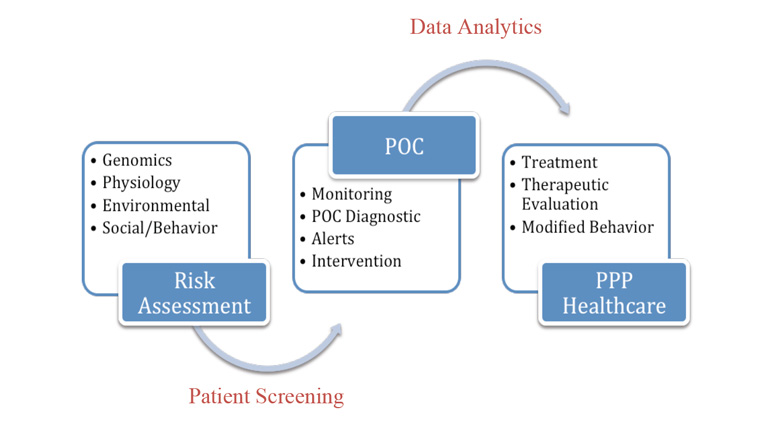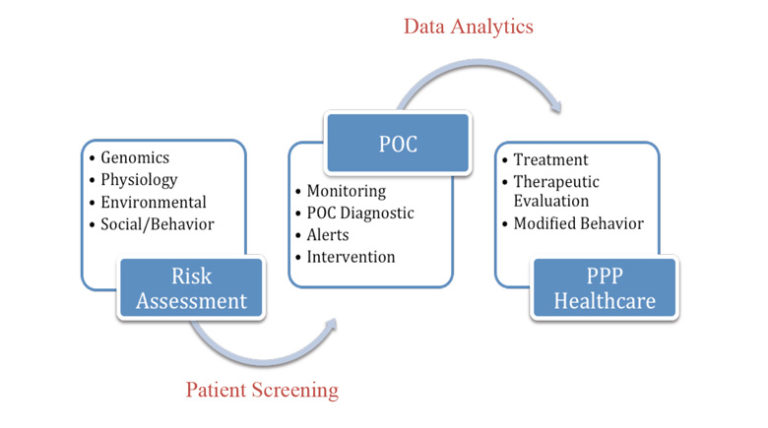This Article is Featured in the Special Issue NIH-IEEE POCT 2015

Recent advances in biosensors, medical instrumentation, and information processing and communication technologies (ICT) have enabled significant improvements in healthcare. However, these technologies have been mainly applied in clinical environments, such as hospitals and healthcare facilities, under managed care by well-trained and specialized individuals. The global challenge of providing quality healthcare at affordable cost leads to the proposed paradigm of Preventive, Personalized and Precision Medicine that requires a seamless use of technology and infrastructure support for patients and healthcare providers at point-of-care (POC) locations including homes, semi or pre-clinical facilities, and hospitals. The complexity of the global healthcare challenge necessitates strong collaborative interdisciplinary synergies involving all stakeholder groups including academia, federal research institutions, industry, regulatory agencies and clinical communities. It is critical to evolve with collaborative efforts on the translation of research to technology development towards clinical validation and potential healthcare applications. This special issue is focused on technology innovation and translational research for POC applications with potential impact in improving global healthcare in the respective areas. Some of these papers were presented at the NIHIEEE Strategic Conference on Healthcare Innovations and Point-of-Care Technologies for Precision Medicine (HI-POCT) held at the NIH on November 9-10, 2015. The papers included in the Special Issue provides a spectrum of critical issues and collaborative resources on translational research of advanced point-of-care devices, information processing and communication technologies into global healthcare environment.

